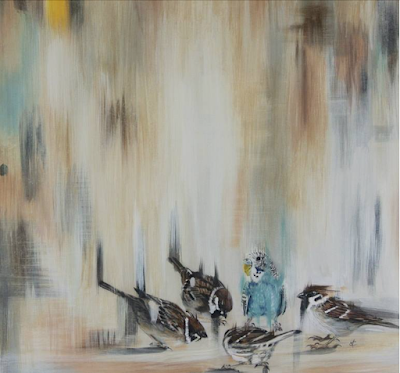by Rachel R. Baum
 |
| A memorial for Shayma Roman, 17, who was killed in front of her grandmother’s house in Brooklyn. Credit: Laylah Amatullah Barrayn for The New York Times, December 27, 2022 |
Guns are now the No. 1 cause of deaths among American children and teens, ahead of car crashes, other injuries and congenital disease. —The New York Times, December 15, 2022
measure guns, like AR-15s, in linear feet,
or add up the dead, war’s body count
more guns for everyone, more bullets,
more spent shells, more active shooter drills
more school playgrounds empty of play
blinds closed, lights off, how many will fit
in a supply closet, behind its door, they turn
and bump, constellations in a night sky
stars hiding in quiet deep black holes
listening for hallway footsteps in space
no light will pierce their sealed vacuum,
like Mercury, another moonless messenger
without wings on their backpacks
they orbit in locked classrooms
holding their teacher’s hand, no talking,
only texting their mothers goodbye.
Rachel R. Baum is the editor of Funeral and Memorial Service Readings Poems and Tributes (McFarland, 1999) and the author of the long-running blog Bark: Confessions of a Dog Trainer. Her poems have appeared in Poetica Review, Raven’s Perch, OneArt, Crosswinds, and others. She chairs the committee that will select the first Poet Laureate of Saratoga Springs.

















